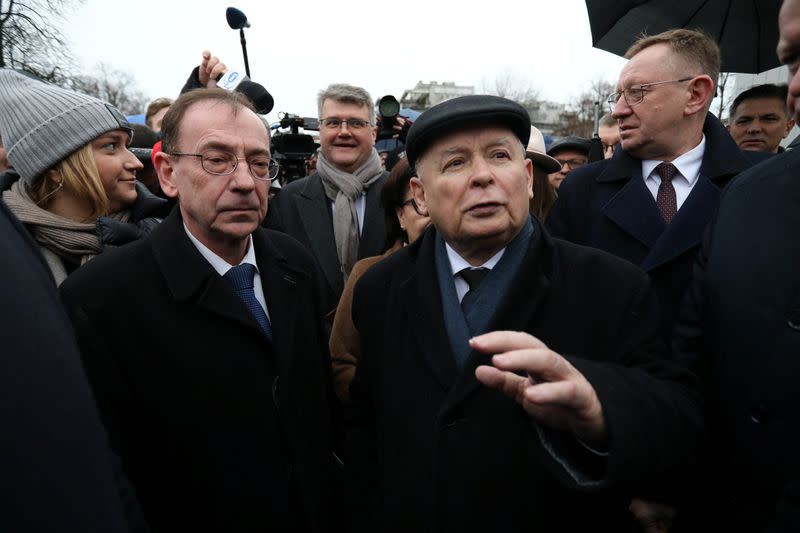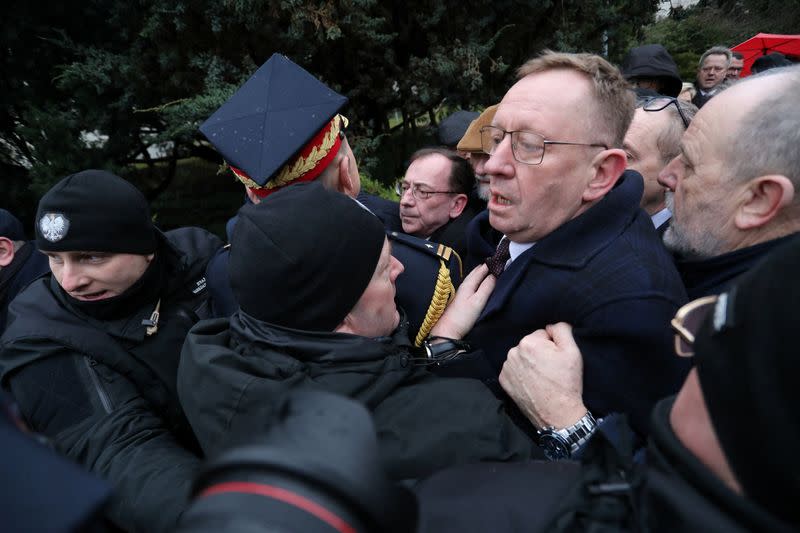Polish opposition politicians scuffle with parliament security in spat over status
WARSAW (Reuters) - Two Polish opposition politicians mired in a row over whether they can still sit in parliament after criminal convictions tussled with security outside the assembly on Wednesday as they tried to force their way in.
The dispute over whether the politicians - members of the former ruling Law and Justice (PiS) party - lost their parliamentary mandates when they were convicted of abuse of power threatens to paralyse Poland's legislative process.
President Andrzej Duda, a PiS ally who pardoned both men, has vowed to send laws passed in votes in which they do not participate to court to check their compliance with the constitution.
Former interior minister Mariusz Kaminski and his deputy Maciej Wasik were jailed last month after being sentenced for abuse of power in their previous roles. They claimed to be "political prisoners" and denied they had lost their parliamentary mandates.
They tried to push their way into parliament, supported by a group of senior Law and Justice (PiS) politicians.
"We are MPs in accordance with the judgment of the Supreme Court," Wasik told reporters.
At a press conference before the sitting of parliament on Wednesday, Speaker Szymon Holownia said: "Mr Wasik and Mr Kaminski are not MPs pursuant to the judgment of the District Court in Warsaw, nothing has changed".
"They will not be let in, they will not vote, they will not take part in the work of the parliament."
Lawyers say the case is an example of chaos in Poland's legal system after an overhaul under PiS. Several courts had issued contradictory rulings in their cases.
President Duda had pardoned both politicians after they were first sentenced in 2015 but Poland's Supreme Court deemed his move invalid, saying a pardon could not be granted before a final ruling in the case was issued.
The two men then served in the nationalist PiS government but the Supreme Court said last year the case should be reopened. They were sentenced to two years in prison in December. Duda pardoned them again in January.
(Reporting by Anna Wlodarczak-Semczuk and Pawel Florkiewicz; Editing by Emelia Sithole-Matarise)

 Yahoo News
Yahoo News 

